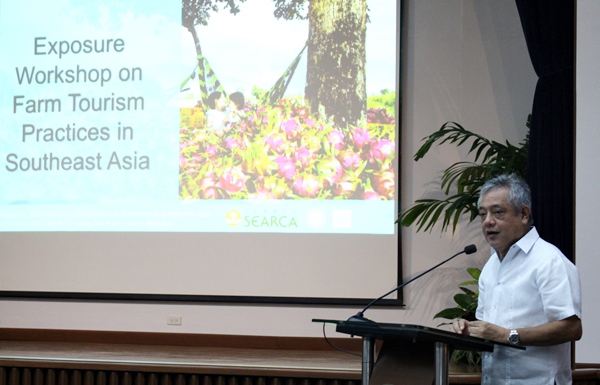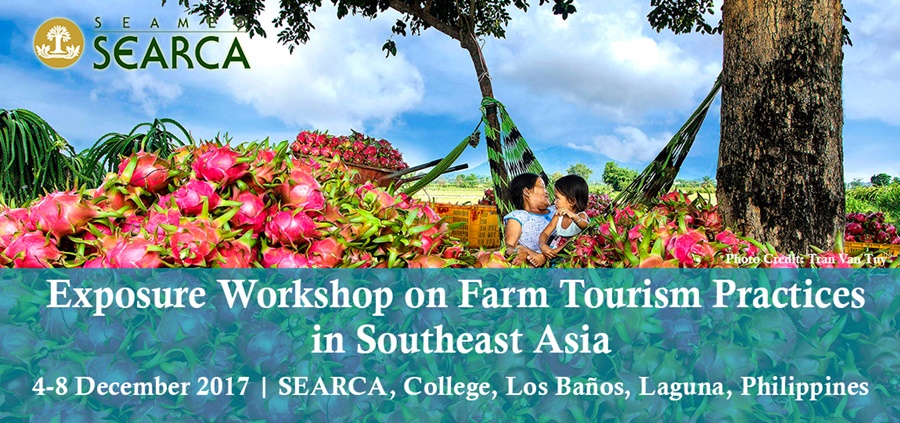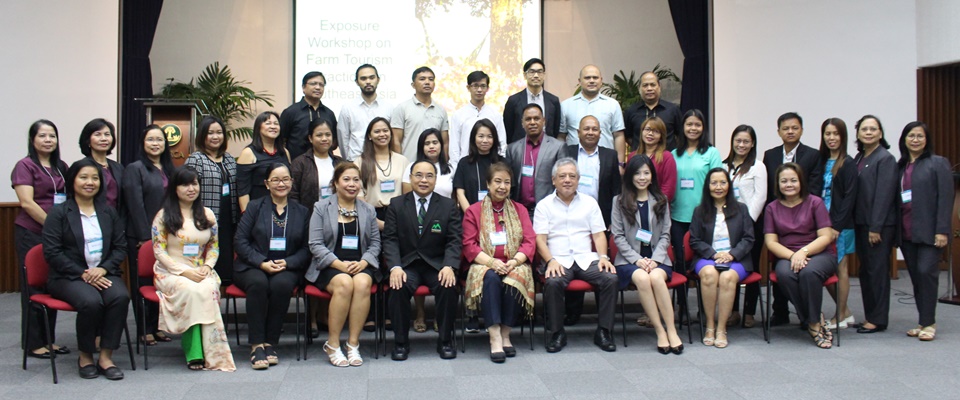Dr. Gil C. Saguiguit, Jr., Director of the Southeast Asian Regional Center for Graduate Study and Research in Agriculture (SEARCA), offers this reflection as SEARCA opens its five-day Exposure-workshop on Farm Tourism Practices in Southeast Asia here on 4 December 2017 at SEARCA Headquarters.
Designed as a platform where different stakeholders from across the region may share, learn, and update themselves on the varying states of and trends in farm tourism in Southeast Asia, the exposure-workshop has participants representing six countries in the region – Cambodia, Indonesia, Philippines, Thailand, Timor Leste, and Vietnam – plus Taiwan represented by a resource person.

Dr. Saguiguit related SEARCA's efforts to establish a Southeast Asian AgriMuseum and Learning Center in Agricultural and Rural Development with offering this workshop, in that both initiatives place agriculture and the exciting prospects it has to offer centerstage. This is towards greater appreciation of agriculture not just for the youth in their career choices, but also for other important sectors and the general public as a whole.
SEARCA's workshop organizing team recognizes the strides made by an active farm tourism industry in the Philippines led by the Department of Tourism (DOT) and initiatives of the International School of Sustainable Tourism (ISST), both of whom SEARCA has tapped as knowledge partners in this event. “These two institutions have been very busy making great progress in advancing farm tourism in the Philippines, along with partner agencies like the Agricultural Training Institute of the Department of Agriculture (DA ATI), Technical Education and Skills Development Authority (TESDA), and Department of Trade and Industry, with the active engagement of farm tourism operators,” Dr. Saguiguit and his team observes.
The SEARCA Director further acknowledges the Office of Senator Cynthia A. Villar in guiding SEARCA’s efforts in organizing the workshop. In 2016, the Philippines, with a push from the senator, signed into law the Farm Tourism Development Act, effectively institutionalizing the Philippine government’s farm tourism programs in helping raise farmers’ incomes and increase players in the rural tourism industry.
Four years earlier in 2012, SEARCA spearheaded the First Philippine National Agritourism Research Conference. It then aimed to identify research gaps and policy implications that can help develop agritourism in the country.
This week's exposure-workshop features presentations led by ISST President and former Tourism Secretary Dr. Mina T. Gabor, on global and regional trends in farm tourism; followed by presentations by experts from the University of the Philippines Los Baños, DOT, Maejo University in Chiang Mai, Thailand, Chung Hsing University in Taiwan, various leaders and CEOs in farm tourism practice in the Philippines and in Thailand, Central Bicol State University of Agriculture, and agriculture consultants. Details about the workshop and its program are found at http://bit.ly/farm-tourism-wshop-2017.
The learning event is organized by SEARCA's Training Unit under its Knowledge Management Department. (Maria Celeste H. Cadiz)

